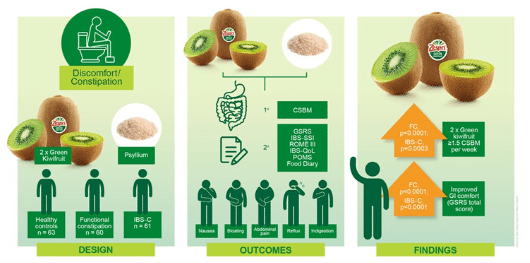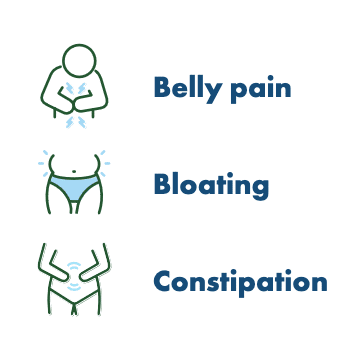Dear GI Doctors, Please Send Your Patients to a Registered Dietitian
As a registered dietitian (RD), I love working with gastroenterologists to help our patients find relief from their digestive symptoms. While all of your patients can benefit from seeing an RD for their digestive conditions, I want to specifically address why dietitians are an essential part of the medical team for those with irritable bowel syndrome (IBS).
Over the years, I’ve seen an increasing number of gastroenterologists recommend the low FODMAP diet to patients with IBS. This is fantastic because the low FODMAP diet is an evidence-based nutritional therapy to help reduce IBS symptoms. However, the current practice of giving patients a single handout with a list of foods to avoid may not be enough to set our patients up for success.
This is where registered dietitians come in! Let’s discuss why you should refer your patients with IBS to an RD.
RDs can help determine if low FODMAP is the right choice
Registered dietitians are highly trained to help patients find the right diet for their specific circumstances. While the low FODMAP diet is a useful tool to help address IBS, it’s not for everyone.
When you refer your patient to a dietitian, you can rest easy knowing that the RD will complete a full nutrition assessment before making any changes to the patient’s diet. If the patient already has other dietary restrictions, the RD may recommend a less-restrictive version of the low FODMAP diet, which is now being called a “FODMAP‐gentle” diet.
Furthermore, dietitians are trained to screen for eating disorders and disordered eating behaviors. If either of these are present, a low FODMAP diet may end up doing more harm than good.
RDs are expert planners
If the patient and dietitian agree that the low FODMAP diet is the best course of action, the patient is usually going to need help getting started.
The low FODMAP diet is very complex and it can be easy for those who are unfamiliar with the diet to make mistakes early on. It’s common for patients who take on the low FODMAP diet without help to end up doing it wrong.
Another problem with patients trying the low FODMAP diet alone, is that they can put themselves at risk for nutrient deficiencies.
Working with a dietitian ensures that the patient has a well-balanced meal plan to follow that also fits within their personal preferences.
RDs can act as low FODMAP cheerleaders
Completing the elimination phase of the low FODMAP diet is not an easy feat, but dietitians can provide ongoing support to help ensure that patients are successful. The increasingly popular use of telehealth services can put the RD at the patient’s fingertips and ensures that no question goes unanswered.
Having consistent encouragement and support from a dietitian will help to bolster patient compliance and increase the potential for symptom relief.
RDs guide patients through reintroduction
The low FODMAP diet is only meant to be used in the short-term. After multiple weeks of the elimination phase of the diet, research suggests that patients should be moved into the reintroduction phase. This is when high FODMAP foods are systematically challenged in the patient’s diet to determine their tolerance.
If a patient has found symptom relief from the first phase of the low FODMAP diet, they may be resistant to challenging foods. Alternatively, some patients stop the low FODMAP diet all at once only to find that their symptoms have returned. Since they did not go through the reintroduction phase, they never learn their triggers and are right back to square one with their IBS symptoms.
The reintroduction phase should be done systematically. Dietitians will develop a personalized plan to help patients challenge high FODMAP foods one by one. This process takes multiple weeks and can be mentally tough on the patient because they must become hyper aware of their IBS symptoms. Having an RD by their side can help reduce stress during this phase.
RDs can provide support after the low FODMAP diet and beyond
Once all the reintroductions are complete, a dietitian will assist the patient with moving into the maintenance phase of the low FODMAP diet. The RD will use what the patient learned from reintroduction to help them develop a new way of eating going forward. The ultimate goal at the end of the low FODMAP diet is to find the broadest way of eating that minimizes symptoms and increases quality of life.
The low FODMAP diet is just one tool in the registered dietitian’s toolkit. If the diet doesn’t provide the desired reduction in symptoms or if it was too much of a challenge for the patient to follow, the RD can provide other options.
The low FODMAP diet is a clinically studied diet that has been shown to alleviate IBS symptoms. While many patients try the low FODMAP on their own, dietitians can help ensure that patients start the diet safely and move through all three phases successfully. The next time you diagnose a patient with IBS, please consider referring them to a registered dietitian!
Katelyn Collins, RD is a registered dietitian specializing in irritable bowel syndrome (IBS) and digestive health. Katelyn’s personal experience with IBS first sparked her passion for nutrition and health. Since then, she has been a vocal advocate for the digestive health community and has dedicated her own nutrition practice to serving those with digestive conditions.
Listen to our
latest Podcast!







